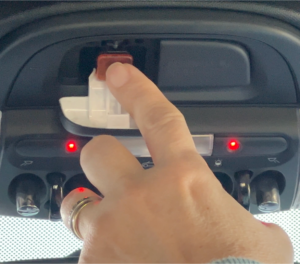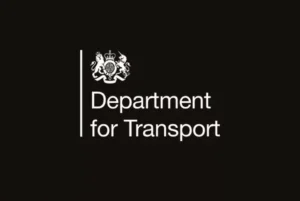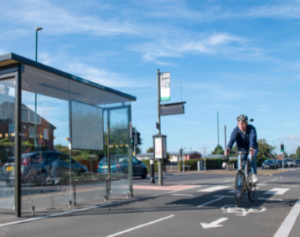Better use of eCall technology, personalised navigation apps for disabled passengers and robots for freight at ports are among 67 transport technology projects being developed and tested through new funding.
Technology Minister Jesse Norman has announced 67 innovative projects developing transport technology which are receiving a share of £1.96 million in funding as part of the Government’s Transport Research and Innovation Grant (TRIG) Programme.
Other projects receiving funding include an app that uses augmented reality (AR) to help visually-impaired passengers get around rail stations, remote-controlled robots for deliveries, kite-powered tug boats to reduce emissions and drones to deliver packages in hard to reach areas.
The TRIG programme looks to encourage engineers, academics and innovators to develop ‘blue-skies’ research into real-world solutions to address some of transport’s most pressing issues, such as decarbonisation. This can be a useful way for researchers to take their first steps creating a new company, helping to grow the economy and create jobs across the UK.
Transport and Decarbonisation Minister Jesse Norman said: “From making travelling easier for visually impaired passengers to improving rural connectivity, these winning projects have the potential to transform the future of transport.
“The Government wants the UK to be a world leader in the future of transport, and through the TRIG programme the Department for Transport is supporting innovators and businesses to decarbonise and improve transport while growing the economy and supporting jobs across the UK.”
Some of this year’s winning projects include:
- VESOS Solutions partnering with Fire and Rescue Services to maximise the value of automatic data from eCall to provide life-saving data in real time
- Makesense Technology to create an app that uses augmented reality to create bespoke walking routes to help visually impaired travellers get around railway stations.
- IONA Logistics Ltd to explore how autonomous drones based out of small delivery hubs can be used to deliver small packages faster and cheaper to hard to reach rural areas.
- Transreport Limited to create an app that allows disabled and older passengers to book the support they need on plans in advance to improve the experience. This app is already in use on trains.
- Port of Tyne to explore the viability of using remotely-controlled, and in some instances automated, electric heavy-duty robots to replace HGVs to provide a cleaner and faster alternative, reducing delays in the delivery process.
- CC Informatics to explore the use of drones to create 3D digital models of structures, such as bridges and rail tracks, to identify cracks and defects in the structures that would otherwise be invisible, meaning repairs can be made quicker and before more serious issues could develop.
- Imperial College London to research the use of Kiacrete, a new type of paving made from recycled materials, instead of concrete as a more permeable solution to see how it can be used on highways to drain away surface water and reduce flooding.
The Department for Transport says that, through the TRIG programme, funded projects could have a transformative impact on transport. This year’s winners bring the total amount invested through the TRIG programme to over £12 million since it launched in 2014, having funded nearly 300 projects.
The programme is designed to focus on a range of transport-related areas, including maritime decarbonisation, the future of freight, local transport decarbonisation, improving the rail passenger experience, and transport resilience to severe weather and flooding.
The TRIG programme, delivered in partnership with Connected Places Catapult, brings together talented innovators – mainly start-ups and universities – and policymakers at the earliest stage of innovation to help enhance the UK’s transport system.
Nicola Yates OBE, Connected Places Catapult, Chief Executive Officer said: “By getting funding into innovative start-ups, we are creating jobs of the future and growing vital areas of the economy. Transport Research and Innovation Grants support high-potential innovators to develop their ideas into new products and services. In addition to an injection of funding, companies that join the TRIG cohort benefit from access to experts from Connected Places Catapult to help them on their journey to commercialisation.”
(Picture – Yay Images)























